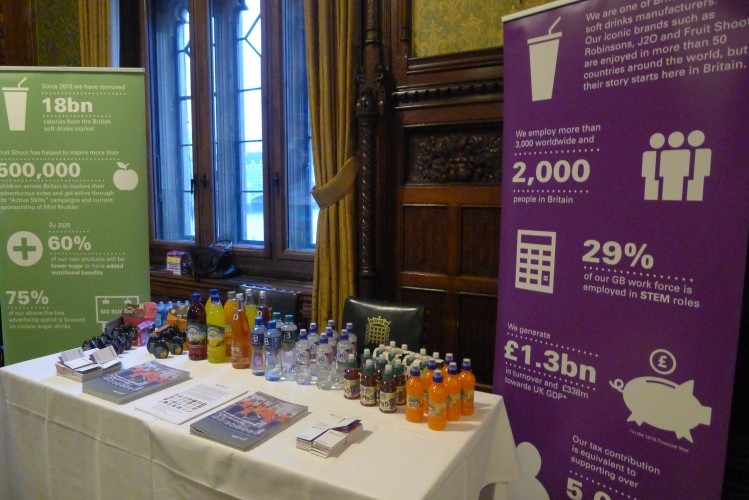Soft drinks firms claim sugar tax won’t work

Britvic director of corporate affairs Susan Turner said the UK’s number two soft drink producer has already reformulated products to reduce sugar levels and will continue to do so.
Asked about sugar tax proposals from health lobbyists, Turner said: “We are more in favour of a voluntary approach.
‘Regressive tax’
“We believe it is a regressive tax. This is a complex issue and needs multiple solutions.”
She spoke to FoodManufacture.co.uk at a British Soft Drinks Association event at the Houses of Parliament on Monday evening (October 26).
Lucozade Ribena Suntory interim head of communicationsAdam Harridence said industry was already making “great strides” in calorie reduction and also opposed the idea of a sugar tax.
“From our point of view, we don’t believe it works,” Harridence said. “Sugar tax looks at one particular aspect and we are already delivering on that as an industry.”
He said it was important not to just focus on sugar as a single nutrient without looking at other issues such as exercise, levels deprivation and education in relation to obesity.
Representatives from PepsiCo and A.G. Barr at the event declined to offer views on the proposed sugar tax.
Tax not ‘a solution’
However, an A.G. Barr spokeswoman later said: “We do not believe that an additional tax on soft drinks is a solution to tackling a specific health issue like obesity.
“We feel that the most effective measure is to promote balanced diets and healthy, active lifestyles through information and education.”
She said the company was fully committed to playing its part in calorie reduction and the provision of clear guidelines on sugar in products.
“Since 2011 we have reduced our average calorific content across our portfolio by 7.8% and we will continue to work towards further reductions,” she said.















